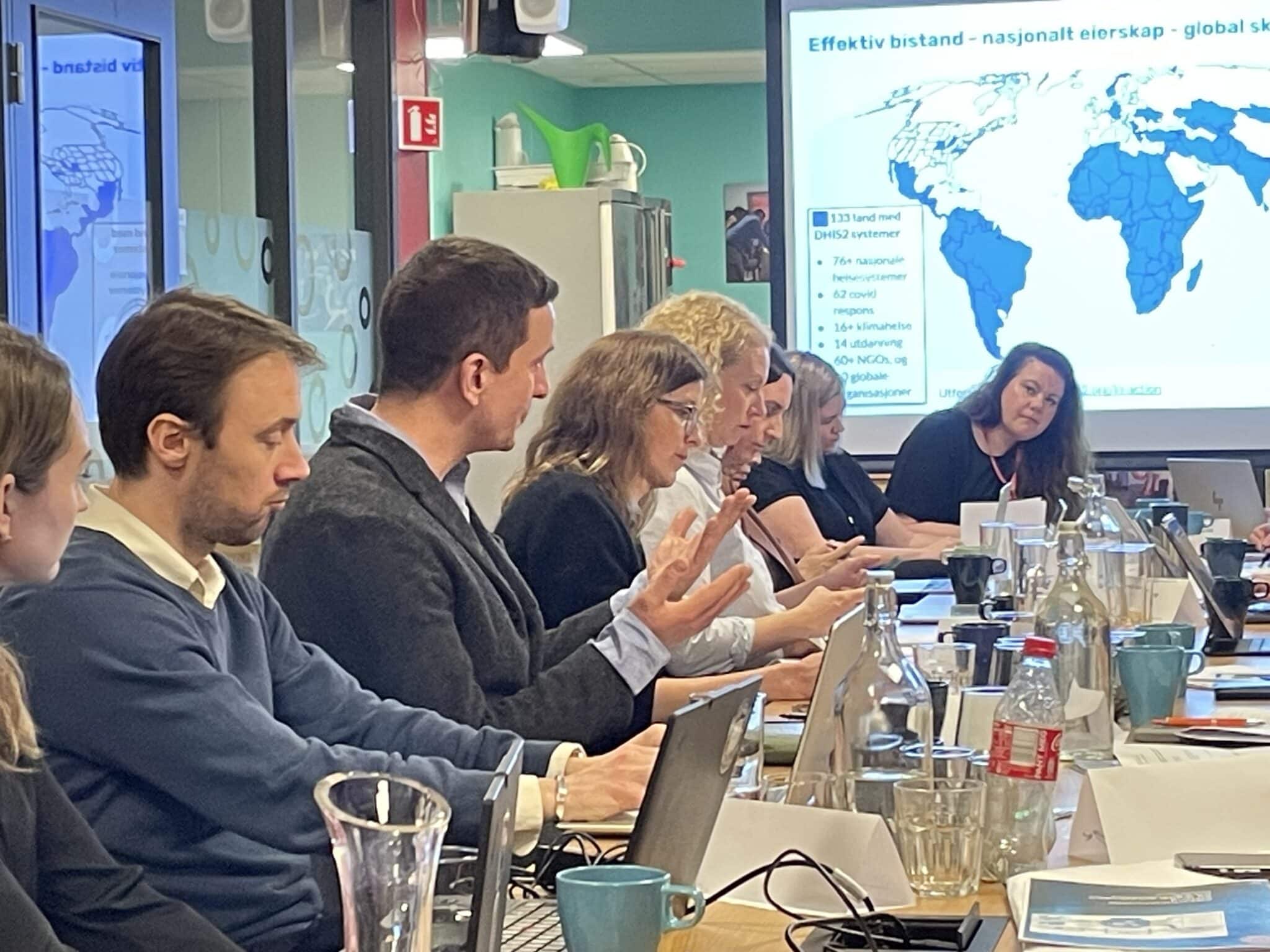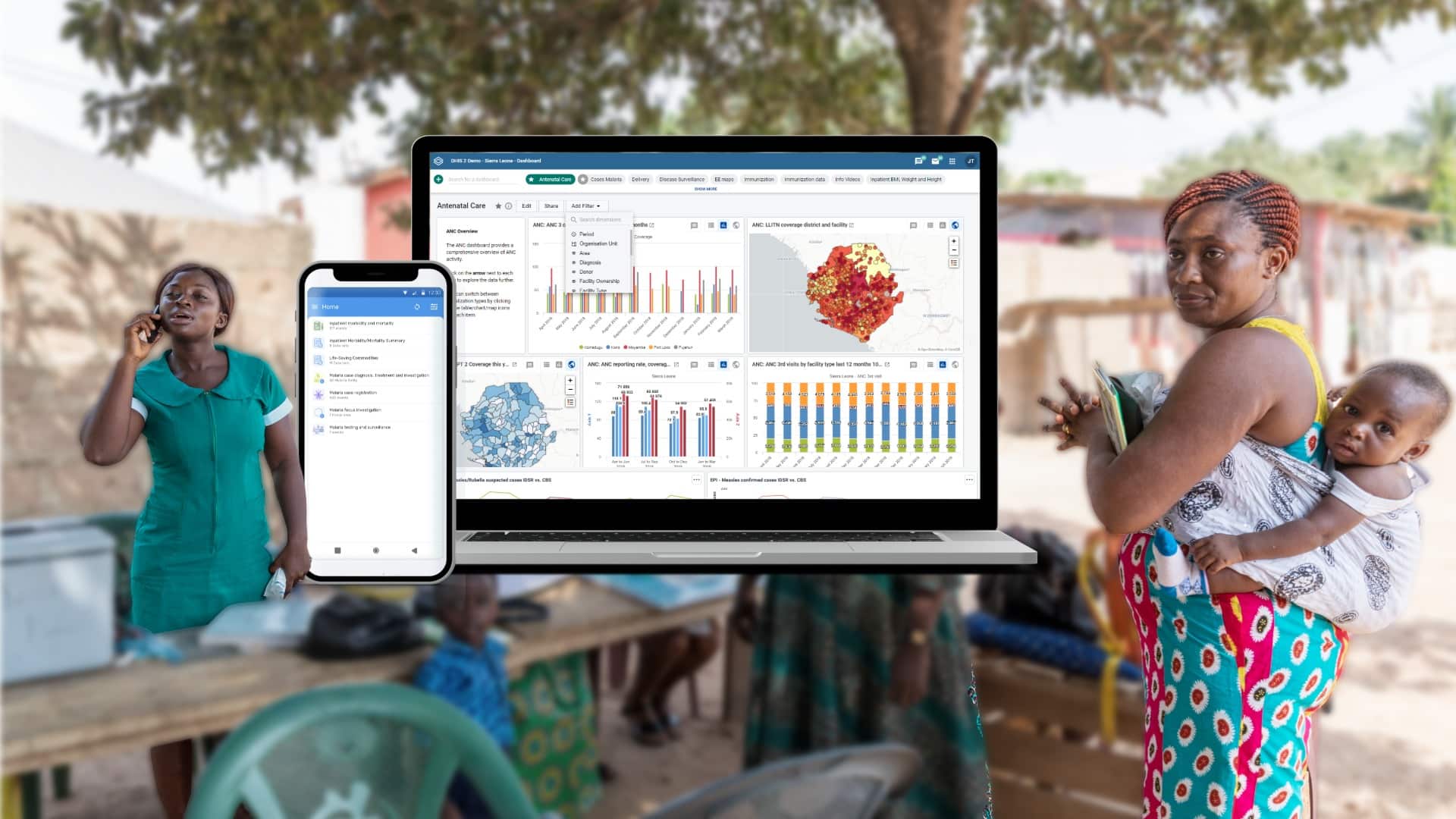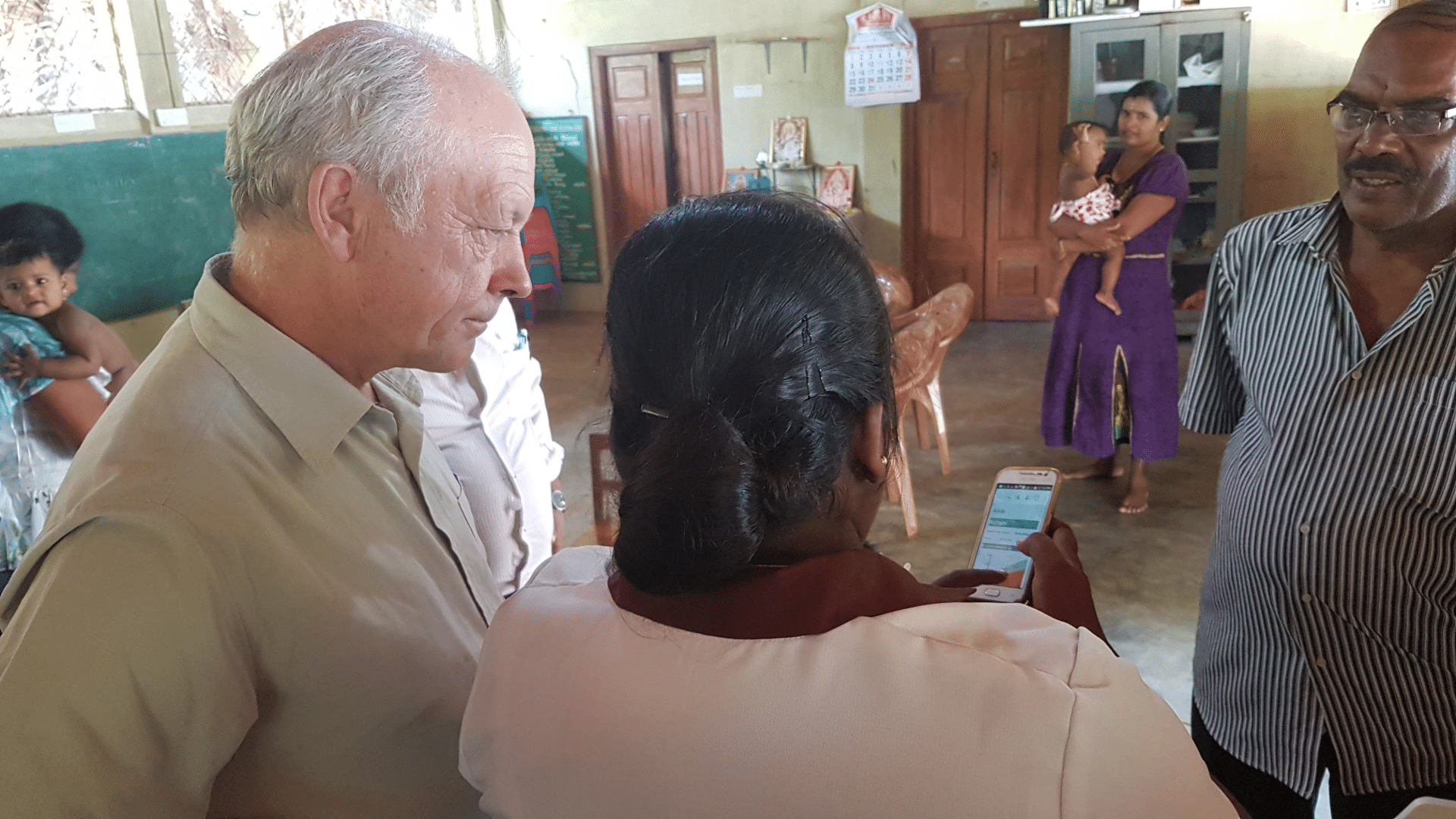The DHIS2 Annual Conference takes place from 15-18 June 2026! Learn more
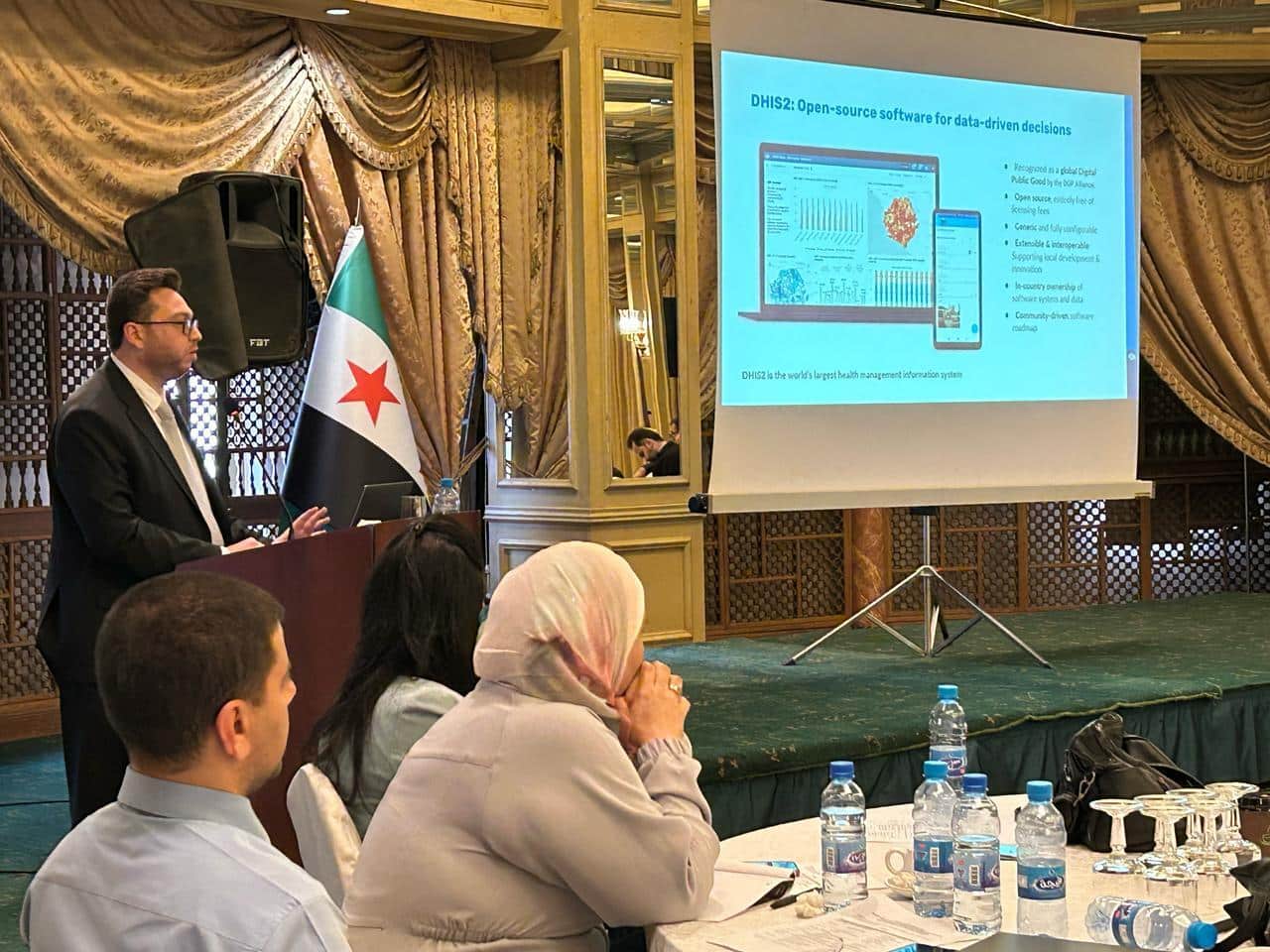
Damascus Workshop on Syria’s needs for integrated health system highlights role of DHIS2
Syria’s Minister of Health and Norway’s Ambassador to Syria spoke of the importance of expanding DHIS2 implementations for strengthening national health infrastructure
Syria’s Ministry of Health and the Royal Norwegian Embassies in Syria and Lebanon hosted a high-level workshop in Damascus on 8 April to address the challenges and needs within Syria’s health sector. Following more than a decade of civil war, Syria is now united under one government, marking a pivotal moment for the country’s efforts to rebuild its health system. The event brought together a broad group of stakeholders, including government officials, representatives from NGOs and UN agencies, and technical experts, to discuss key issues, including the importance of scaling and expanding DHIS2 implementations for strengthening national health infrastructure.
His Excellency Dr. Musaab Alali, Syria’s Minister of Health, and Ambassador Hilde Haraldstad, Norway’s Ambassador to Lebanon and Chargé d’affairs to Syria, officially opened the event, which also featured discussions with senior officials including Dr. Zuhair Al Karrat, Director General at the Ministry of Health.
A central theme of the workshop was the strategic role of digital health systems—particularly DHIS2—as a foundation for strengthening health system governance, improving data use, and supporting more equitable and efficient resource distribution. In his speech, Minister Alali emphasized the value of DHIS2 in northwest Syria as a key tool for evidence-based decision-making. He described the system as a strategic necessity, and reaffirmed the Ministry’s interest in expanding its use.
Representatives from HISP MENA (Middle East and North Africa), a regional DHIS2 implementation and capacity building partner based in Jordan (and member of the global HISP network), supported this workshop and shared insights from the group’s work in northwestern Syria and Damascus, and new efforts to unify the DHIS2 agenda in One Syria. HISP MENA has worked closely with partners in Syria and the broader region to support digital health transformation through DHIS2 system design, localization, and training. Their team was present in Damascus to provide technical input and continue discussions around the scale-up of DHIS2 within the country.
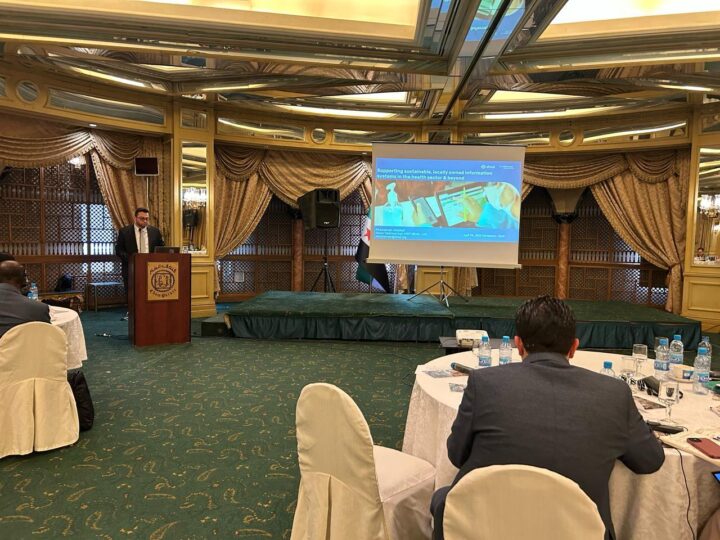
The Ministry of Health highlighted the importance of this workshop and the need to expand DHIS2 implementations within the country. The Norwegian Embassy echoed the significance of this work, writing that health information systems are a “cornerstone in strengthening health systems,” and that Norway is proud to represent the HISP Centre at the University of Oslo and the DHIS2 software that is a digital public good covering more than 3 billion people in 70+ countries, including Syria.
The HISP Centre at the University of Oslo is honored to see the platform recognized in this context as a trusted, scalable digital public good, and we appreciate HISP MENA’s critical work in supporting local implementation. This event marks an important step forward in Syria’s efforts to strengthen national health governance and recovery planning through open, interoperable digital solutions.
